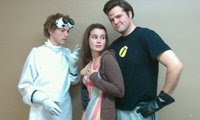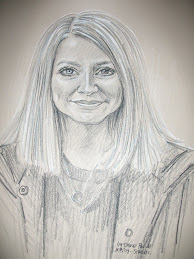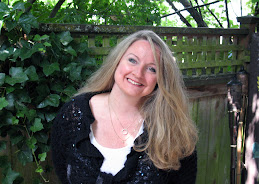Info thanks to John Potter
Subject-Verb Agreement
each: Traditional English grammar holds that the subject of a sentence beginning with each be considered singular: Each of the stores has a manager. When each follows a plural subject, the construction is plural: The stores each have managers.
either/or: When singular subjects are linked by or, either . . . or, or neither . . . nor, the verb is singular as well: Either a psychiatrist or a phrenologist can explain her lastest outbreak. Where one subject is singular and one is plural, the verb agrees with the subject closer to the verb: The chief or the directors have the authority. The directors or the chief has the authority.
herself/himself/myself/yourself: Called reflexive or intensive pronouns, words such as herself, himself, myself, yourself and so forth are used as objects and must be accompanied by subjects: Nancy, herself, took the initiative [intensive]; Erik was talking to himself [reflexive]. Avoid using a reflexive pronoun as a subject: Ms. Jones and I [not myself] took the deposition.
Pluralizing Proper Nouns and Acronyms
Use traditional English pluralization rules for proper nouns: Todd and Jenna Jones become the Joneses; Hoffmann to the Hoffmanns; Becker to the Beckers; Edward and Charles to the Edwards and Charleses. When proper names have non-English forms that result in awkward plural forms, it is best to rewrite the sentence to avoid plural formations. Acronyms are made plural by adding -s: DVDs, SOSs, IOUs, SOJs, BPs, CPAs, and so on.
Pluralizing Compound Nouns
Pluralize hyphenated and open compound nouns by adding the -s to the element that is "subject to the change in number": mothers-in-law, attorneys general, doctors of philosophy, courts-martial, deeds of trust, attorneys-at-law, for a sampling.
Possessives
Tradition has it that singular common and proper nouns and acronyms show possession with an apostrophe and -s: Becky's birthday celebration is today. Mr. Jones's humor fell flat. EMS's profits are in the tank. The exception to this rule has been not to triple the -s sound: Mr. Jones' success is in doubt. For plural nouns, just add the apostrophe: The Joneses' party is tonight. The sailors' keelhauling extravaganza will begin sharply at 1800 hours. The men's and women's categories are listed on the sign-up sheet. Note: as the "men's and women's" have separate and distinct "categories," each noun takes an aposptrophe and -s. For joint ownership, only one apostrophe and -s is needed: Sarah, Karla, and Nicole's joint venture has been quite profitable.
Quotations
Generally speaking, quotations must duplicate the original material in spelling, capitalization, and formatting. Commas and periods are always placed inside the quotation marks; colons, semicolons, and other punctuation marks are placed outside unless they appear in the original. Quotations of 50 or more words should be placed in block form, single-spaced and indented. Quotations of less than 50 words can be placed in block form for emphasis.
Ellipsis points can take one of two forms: ". . . ." or "* * *." Note: Each point has one space of separation from its neighbor, including the following comma or period; exception: No space between the final asterisk and its closing comma or period.
Seasons of the Year
The seasons spring, summer, fall, and winter are generally lowercased, unless personified: It's Winter for my 401(k).
Some Preferred Spelling: Foreign Words and Phrases
a priori; ab initio; de minimis; dictum; e.g.; et al.; et seq.; e.g.; ex parte; ibid.; id.; i.e.; in limine; inter alia; per se; pro se; quantum meruit; res ipsa loquitur; res judicata; respondeat superior; sine qua non; stare decisis; sua sponte; viz.; voir dire
[Note: Some writers prefer these words without italics, and their preference should be respected].
YOU ARE HERE EDUCATOR’S GUIDE
5 months ago
































